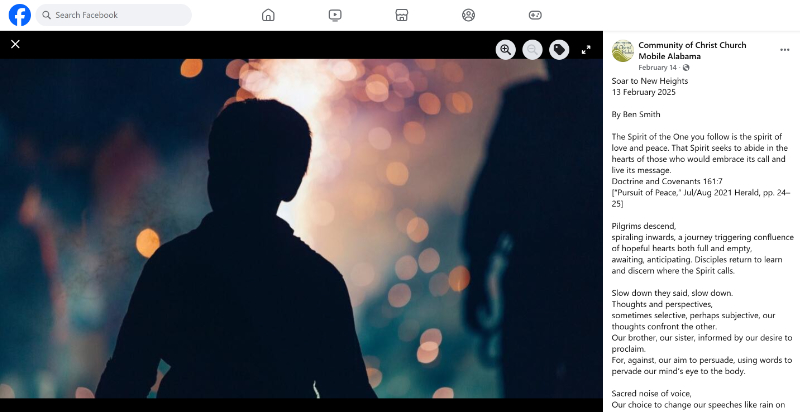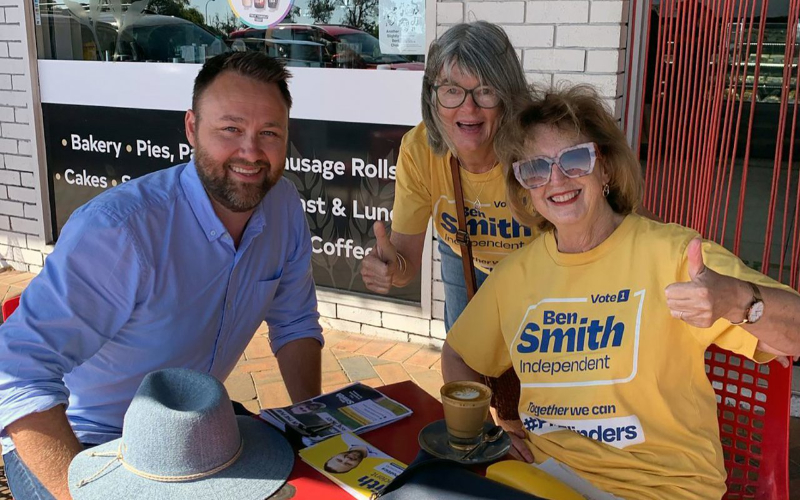Despite getting 45% more first preference votes in 2025, independents didn’t win any extra seats in the 48th Parliament. One of the disappointments was Flinders (Vic). Local journo Mike Hast with the story.
Updated on August 6. A statement from Ben Smith.also included in link below.
During his National Press Club address, Simon Holmes à Court described the role of Climate 200. “Climate 200 does not run campaigns. Climate 200 does not target seats or select candidates. Those responsibilities lie squarely with the communities themselves. Climate 200 comes to these campaigns relatively late in the game after countless kitchen table conversations, after town halls and after candidate selection.”
However, to some voters in the Flinders electorate, this appeared not to be an accurate description of Climate 200’s involvement. There was a perception that Climate 200 was pulling strings well before the election campaign even began.
Climate 200 refutes this. Their preferred candidate, Ben Smith, got 21.2% of the primary vote, and fell short on preferences to the Liberal Party’s Zoe McKenzie.
But first, some background.
Flinders electorate – which covers most of the Mornington Peninsula, a mixed suburban and rural region an hour’s drive south of Melbourne – has been a Tory stronghold for most of its 124 years.
But by 2025, the peninsula’s ‘community independent’ movement had gained a head of steam after strong showings by independents at federal elections in 2019 and 2022.
Julia Banks began the movement when she quit the Liberal Party and stood as an independent against Greg Hunt in 2019, snagging almost 14% of the first preference votes.
Voices of Mornington Peninsula
In 2021, Voices of the Mornington Peninsula selected Claire Boardman. However, one of the unsuccessful candidates, local mayor Despi O’Connor, decided to stand anyway. So, the growing independent vote was going to be split – no way to unseat the incumbent – and two camps manifested.
Then, to compound the angst, Boardman pulled out. At the last minute, Voices picked a new candidate – high-profile peninsula independent movement advocate Dr Sarah Russell.
On polling day, the independent vote went backwards, but not by much. Banks had won nearly 14%, O’Connor and Russell totalled 12.5% combined.
But it was the loss of credibility that hurt the most. Weren’t the independents showing the same sort of infighting and navel-gazing as the main parties? The two independent factions licked their wounds, and some of the wiser heads set about bringing everyone back together again – looking ahead to the 2025 election.
Russell, a prominent public health researcher and aged care advocate, formed Progressives of the Peninsula, seeking to bring independents, Labor, Greens and Animal Justice supporters together, reasoning that any chance of unseating the Liberals would require advantageous preference flows.
Russell later formed a group called Independent 4 Flinders, or I4F. This community group set about finding a high-profile independent community candidate.
In August 2024, I4F was one of the community groups awarded a Climate 200 ‘accelerator grant’. Russell stepped aside, believing this would bring the two independent camps from 2022 together and allow the community’s independent movement to make a fresh start.
Climate 200 mentors
C200’s involvement was kept under the radar, although the I4F chair told prospective candidates that Climate 200 was “mentoring” them, raising doubts about Climate 200’s claims that it didn’t get involved in community groups.
But then, much to the horror of many I4F members, a Climate 200 ‘strategist’ rebranded the community group in teal colours – changes were made to its website and flyers, and ‘tealy’ T-shirts were designed.
Instead of continuing to build community, I4F immediately launched into campaigning under the slogan ‘Climate. Housing. Integrity’.
These topics had not been determined by asking I4F members what issues mattered to them.
Worse was to come. Without any explanation to I4F members, the selection process was changed. Two frontrunners emerged – Ben Smith and Bronwyn Currie. Smith got the guernsey, despite members of I4F unanimously saying at a meeting in June that they preferred a female candidate.
Five people from outside the Flinders electorate were employed to run Smith’s campaign, including a Climate 200 employee. (Editor’s note: Climate 200 has since clarified that the latter, albeit a Climate 200 contractor, engaged in the Flinders campaign strictly on a volunteer basis.)
Enter Ben Smith
Almost overnight, Smith’s face appeared everywhere – on fences, roadsides and freeways. Big and small signs, in yellow and navy blue, not teal. Multiple brochures were mailed to letterboxes, and residents were inundated with internet advertising. It was obvious the campaign had a huge budget.
Arguably, the biggest misstep by the Smith campaign brain trust was hiding his strong connection to a breakaway branch of the Mormon church. In fact, he was an ordained minister in the Community of Christ, which had changed its name in 2001 from the Reorganised Church of Jesus Christ of Latter-day Saints. The Church is the second-largest of the Latter-day Saints movement.
Campaign bosses claimed that media reports ($) of Smith’s Community of Christ membership were “misinformation”. Campaign workers at pre-poll places and on election day, asked about Smith’s Community of Christ connection, told voters it was “in his past”. This does not appear to be true given recent Facebook posts here and here.

Ben Smith’s Facebook post
A few weeks before pre-poll began, all digital evidence of Smith’s ministry with the Community of Christ was deleted from the Community of Christ website. This caused people to question Smith’s integrity.
While the focus of many community campaigns around the country was on doing politics differently, the focus of Smith’s campaign was on beating the Liberal Party at all costs, even to the extent of adopting tactics from the Liberal Party’s playbook. These included making promises about Mornington Peninsula issues such as banning jet skis, upgrading the peninsula’s only public hospital, and ‘saving’ the 300-metre Arthurs Seat granite hill from a luge ride.
None of these issues are the responsibility of a federal MP.
Throughout the five-month election campaign, Smith’s top people talked up his chances of success, a not unreasonable tactic in this modern era of spin, but many of the claims were fantastic. For example, a WhatsApp message sent to volunteers stated that Smith was on track to win on first preference votes.
BIG UPDATE! Latest polling shows we are at 49.2%. That’s just 791 votes. 791 votes between us, making history or not.
Flinders result
After the full distribution of preferences, the difference was 5,257 votes in favour of McKenzie.
After McKenzie was declared the winner on 28 May, Smith campaign bosses and many of their hardworking supporters indulged in an orgy of self-congratulation. “We nearly won,” was the catch-cry.
In the wash-up, Smith’s Climate 200-driven campaign has attracted vigorous criticism. A grassroots movement became a top-down campaign that repeated mistakes made by both major and minor parties in the modern era.
What happened to the grassroots campaign? The kitchen table conversations? Integrity? Financial transparency? Of the 35 candidates listed by Climate 200 as beneficiaries of its fundraising, 19 disclosed their donations, with Smith among those who didn’t.
The notion of a community-supported independent candidate winning Flinders is not dead. The core groups and their members will reform – yet again. Next time, they might say to Climate 200: “Sure, we value your financial support, but we want to run our own campaign.”
Editor’s note: MWM asked Climate 200 how much they had spent on the Flinders campaign and was told to “wait for the AEC disclosure”. Ben Smith asked to include his response – see below.
 Loading...
Loading...
Time to go digital? Bradfield cliffhanger a case for paperless elections
Mike Hast started his journalism career on the Mornington Peninsula in 1971, edited three peninsula papers and is now a contributor to Radio Port Phillip’s current affairs program Peninsula Talks.

